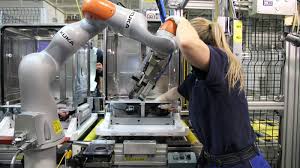Source: expresscomputer.in
The COVID pandemic continues to wreak economic turmoil globally, hitting global trade and investment at its core with global supply chains facing unprecedented stress. Businesses and individuals continue to struggle to procure raw materials and products as factories, warehouses, and supply chains get affected by the intermittent lockdowns. In fact, even e-commerce came to a halt when the first lockdown was announced in India, way back in March. A report by advisory firm Forrester suggests that the Indian e-commerce sector is estimated to have lost $400 million worth of sales in the first week of lockdown itself, as operations were heavily disrupted forcing several platforms to temporarily suspend services. The pandemic has struck at the core of businesses exposing the fragility of the modern supply chains across functions like transportation, warehousing, and logistics.
Reinventing the Supply Chains
As the world adapts to the new normal, technology-led business models will emerge as more critical to avoid such disruptions again in the future. Corporates around the world are now rethinking their warehouse and distribution systems, leaning more on automation. Adding ‘Cobots’ or Collaborative robots to distribution center floors, using AI for better decision-making, or deploying automated storage and retrieval systems in fulfillment centers – the adoption of the automated systems is providing momentum to the supply chains of tomorrow. European robotics companies like Kuka and Universal Robots have already developed cobots for increased adoption in industrial settings of all sizes while Indian companies like iFuture Robotics and Addverb Technologies are also seeing greater interest towards warehouse automation.
Autonomous delivery is also one of the emerging technologies in retail and a crucial part of the supply chain ecosystem. With various tests underway, researchers believe that automation here could revolutionize the system and reduce delivery costs by 80% to 90%. Although the current state of autonomous delivery stands with a lot of vulnerabilities but the capabilities of the technology are mesmerizing. In the near future, machines will be seen carrying even heavier loads covering longer distances seamlessly.
Automation and increasing adoption of robotics are also converting the traditional storage spaces into “dark warehouses.” Autonomous mobile robots can travel anywhere in these dark warehouses navigating with built-in sensors and laser scanners, retrieving, and taking goods to people, maneuvering around obstacles in their path and can collaborate with people. In the post COVID period, more warehouses and logistical spaces may see shuttles driving through racks, retrieving goods and putting them on conveyor belts, while autonomous vehicles roam the warehouse with pallets of bulk products. Retail majors like Walmart have already been experimenting with dark setups and in fact opened India’s first dark store way back in 2017 itself. But COVID is expected to bring in a fresh lease of life to the concept of dark stores/warehouses.
Modern supply chains to check on counterfeit products too
With greater automation in supply chains, manufacturers are also looking at intelligent labels and packaging for the goods. The technology empowering this is contactless NFC which offers safety and security to users and the ability to interact with products while verifying their authenticity, check expiry dates and gain other useful insights. The built-in protection features such as signatures for originality help in ensuring product authenticity and securing the goods. All of it is viable and can be regulated through smartphones eliminating the need for physically checking compliance of the goods. This becomes even more relevant for countries like India as the industry body Authentication Solution Providers’ Association (ASPA) sometime back revealed that counterfeit products across various sectors in India are causing losses of around Rs. 1 lakh crore every year.
Blockchain meets NFC
Resilience in supply chains depends on trust, transparency and integrity, which can be improved through the responsible deployment of new-age technologies. NFC provides item-level tagging and through the unison of NFC with blockchain, data can be configured to flow into the blockchain ledger automatically, boosting efficiencies and strengthening trust across the entire stakeholder ecosystem.
Companies such as Maersk, British Airways and FedEx have already deployed blockchain technology in its supply chain models in the pre-COVID era successfully. Businesses have acknowledged rapid advances in technology and have put it to use while tackling the current obstacle of limited human presence for operations.
Globalizing the automated supply chains
While the domestic supply chains have been witnessing gradual automation over the last few years, international borders are yet to see automation in the supply chain ecosystem. With significant progress, automation in the global supply chain ecosystem will change the dynamics of trade between countries. In the future, it will provide a hassle-free movement providing more security and clarity in terms of goods that are being shipped. Such technologies will inevitably emerge as the norm and the medium-term objectives would be to make them more global and leverage the supply chain as a key driver of businesses. At NXP, our RFID, edge processing and connectivity products can enable quick, accurate tracking of assets, providing greater visibility, deterring theft, increasing productivity, lowering organizational costs and giving greater control of the overall supply chain process.
COVID-19 has exposed the vulnerabilities of a globalized manufacturing system and in order to respond, global leaders need to fundamentally reconsider supply chains. The current crisis has turned out to be an opportunity to overhaul a system based on obsolete mechanisms. The development of intelligent and agile supply chains holds the key to creating a global network of trade that is capable of weathering potential disruptions like Covid19.


